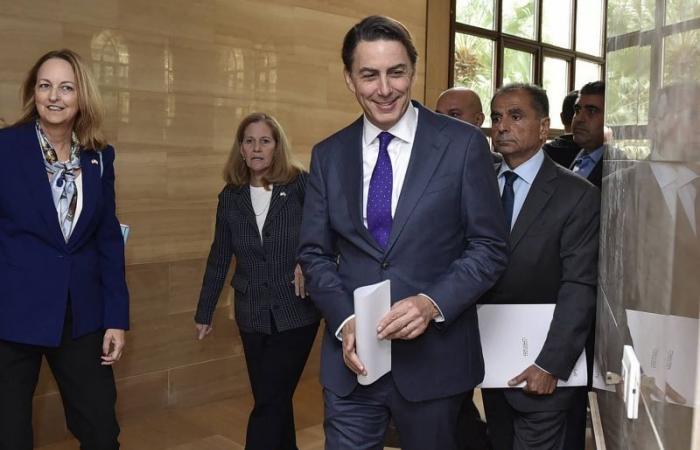Is the war finally over? On Tuesday, the Israeli war cabinet adopted, by 10 votes to one, the ceasefire agreement with Hezbollah in Lebanon, ending a long (and particularly violent) day of waiting.
During a speech, Israeli Prime Minister Benjamin Netanyahu quickly listed the “achievements” of his army, believing that he had taken Hezbollah back ten years and boasting of having assassinated its leader, Hassan Nasrallah. At the same time, he issued a warning to the Syrian president. “Bashar (el-Assad) must understand that he is playing with fire,” he said in reference to the smuggling of weapons to Lebanon for Hezbollah. “Three months ago this would have seemed like science fiction. But we did it,” he said, adding that Israel had “changed the face of the Middle East.” He immediately assured that Israel maintains “full freedom of military action in Lebanon.” “If Hezbollah breaks the agreement, we will attack,” he insisted. Regarding the timing of the truce, the Israeli Prime Minister listed three reasons. “First, we must focus on the Iranian threat,” he said, explaining that he did not want to dwell on this point today. “The second reason is that we must simply allow the troops to rest (…), and we must acquire new ammunition to protect the soldiers,” he continued. As for the third, it is about “isolating Hamas”. “A good agreement is one that is implemented. And we will implement it,” he said, adding that “the duration of the ceasefire depends on what happens in Lebanon.” “With God’s help, we will establish security, we will return the north to the way it was, and we will continue until victory,” he concluded.
Shortly after, US President Joe Biden, whose country is the main negotiator of the agreement, announced that it was expected to enter into force on Wednesday at 4 a.m. local time. “The security of the people of Israel and Lebanon cannot be achieved only on the battlefield,” he said. That is why I have asked my team to work with the governments of Israel and Lebanon to forge a ceasefire and end the conflict. Under the agreement reached today, which will come into effect at 4 a.m. tomorrow, all fighting along the Israeli-Lebanese border will cease. This agreement aims to establish a permanent cessation of hostilities.” “Over the next 60 days, the Lebanese army and state security forces will be deployed in South Lebanon to regain control of their territory,” he added, specifying that the Israelis will withdraw from the South Lebanon during this period. And to warn “But let me be clear: if Hezbollah or any other organization violates the agreement and constitutes a direct threat to Israel, it retains the right to self-defense.” Believing that the agreement constitutes a “new beginning” for Lebanon, he nevertheless affirmed that his country will not send troops to the South. “We, along with France and others, will provide the assistance necessary to ensure that this agreement is fully and effectively implemented.”
According to AFP, Mr. Netanyahu spoke on the phone with the American president and thanked him “for his involvement” in concluding this agreement, the Israeli Prime Minister’s office said.
Shortly after, a joint statement from Mr. Biden and his French counterpart Emmanuel Macron was released, in which the two allies said they “would ensure that the ceasefire agreement in Lebanon is implemented in its entirety.” “The United States and France will work with Israel and Lebanon to ensure that this arrangement is fully implemented and enforced,” the two heads of state stressed. “They remain determined to ensure that this conflict does not provoke a new cycle of violence,” they added.
For his part, the Lebanese Prime Minister, Nagib Mikati, announced in a press release that he had been contacted by the American president. “Mr. Mikati thanked President Biden for the American support for Lebanon and the efforts of his envoy, Amos Hochstein, to reach this ceasefire agreement.” “This agreement, which outlines the road map for the ceasefire, was shared with me this evening. I consider it an essential step towards the restoration of calm and stability in Lebanon, as well as the return of the displaced,” declared Mr. Mikati. He also “demanded that the Israeli enemy fully respect the ceasefire, withdraw from all regions and positions it occupies and fully respect Resolution 1701.”
Is the war finally over? On Tuesday, the Israeli war cabinet adopted, by 10 votes to one, the ceasefire agreement with Hezbollah in Lebanon, ending a long (and particularly violent) day of waiting. During a speech, Israeli Prime Minister Benjamin Netanyahu quickly listed the “achievements” of his army, estimating…
- -





